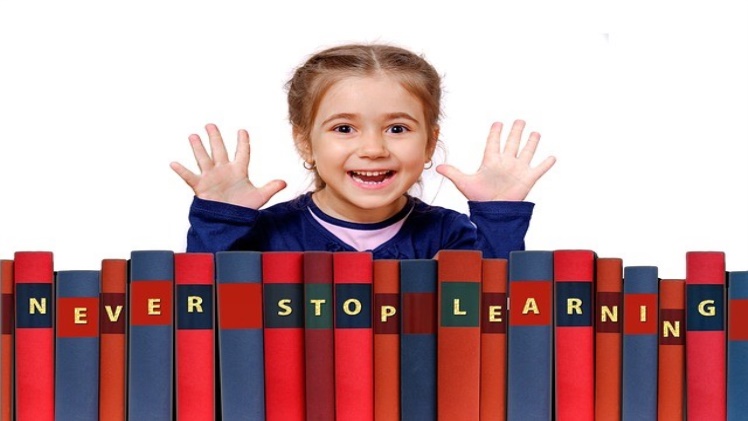6 Essential Tips for Preparing Your Child for Preschool
Communication and Language Development

Preparing your child for preschool can be an exciting yet challenging time for both parents and children. It’s a significant milestone that marks the beginning of their educational journey. To ensure a smooth transition, there are essential tips you can follow. In this article, we will explore six crucial tips to help you prepare your child for preschool successfully.
Establishing a Routine
Setting Consistent Wake-up and Bedtime
Maintaining a consistent wake-up and bedtime routine helps your child develop healthy sleep habits. Set a regular schedule and ensure your child gets enough sleep, as this will contribute to their overall well-being and readiness for preschool.
Planning Structured Activities
Incorporate structured activities into your child’s daily routine to mimic the structure they will experience at preschool. Engage in activities such as storytelling, reading, coloring, or puzzles, promoting cognitive development and focus.
Encouraging Independence
Practicing Self-Help Skills
Encourage your child to practice self-help skills, such as dressing themselves, using the toilet, and washing their hands independently. These skills foster independence and self-confidence, essential for their preschool journey.
Promoting Decision Making
Allow your child to make simple decisions, such as choosing their clothes or snacks. By giving them the opportunity to make choices, you nurture their decision-making abilities and boost their self-esteem.
Socialization Skills
Playdates and Group Activities
Arrange playdates or group activities for your child to interact with other children. This helps them develop social skills, such as sharing, taking turns, and cooperating, which are crucial for a positive preschool experience.
Joining Community Programs
Consider enrolling your child in community programs or classes where they can engage with peers. These programs provide opportunities to enhance their socialization skills and build friendships before starting preschool.
Communication and Language Development
Reading Together
Read books aloud to your child and engage in discussions about the story. This practice fosters language development, vocabulary expansion, and comprehension skills, preparing them for the language-rich environment of preschool.
Encouraging Verbal Expression
Promote verbal expression by actively listening and engaging in conversations with your child. Encourage them to express their thoughts, ideas, and feelings, which will enhance their communication skills and confidence in social interactions.
Emotional Readiness
Acknowledging Feelings
Validate and acknowledge your child’s emotions. Help them identify and express their feelings appropriately, teaching them valuable emotional regulation skills necessary for navigating preschool situations.
Separation Anxiety
Prepare your child for separation by gradually introducing short separations in familiar environments. Practice leaving them with trusted caregivers or family members to help them adapt to being away from you, reducing separation anxiety.
Developing Fine Motor Skills
Engaging in Art and Crafts
Provide opportunities for your child to engage in art and craft activities. Drawing, coloring, cutting, and pasting help develop fine motor skills necessary for tasks such as holding a pencil, using scissors, or buttoning clothes.
Manipulative Toys and Puzzles
Introduce manipulative toys and puzzles that require hand-eye coordination. These toys enhance fine motor skills and promote problem-solving abilities, supporting your child’s cognitive development.
Encouraging Independence and Creativity in Children
As parents, it is essential to foster independence and creativity in our children. Providing them with activities they can do on their own not only promotes their personal growth but also allows them to develop important skills and qualities that will benefit them throughout their lives. In this article, we will explore the significance of giving your kids things to do on their own, along with practical suggestions and insights from influential individuals.
Why Is It Important?
1. Building Confidence and Self-Esteem
By engaging in activities on their own, children learn to rely on their own abilities and decision-making skills. This process helps them build confidence and develop a sense of self-esteem. As Albert Einstein once said, “The only source of knowledge is experience.” Allowing children to explore and solve problems independently empowers them to trust their capabilities and instills a sense of pride in their accomplishments.
2. Cultivating Creativity and Imagination
When kids are given the freedom to engage in independent activities, they have the opportunity to unleash their creativity and imagination. As Pablo Picasso famously stated, “Every child is an artist. The problem is how to remain an artist once we grow up.” Encouraging children to engage in activities such as drawing, writing, or building can nurture their artistic talents and help them express themselves in unique and imaginative ways.
Practical Suggestions
Provide a Variety of Options
To keep your kids engaged and interested, offer them a range of activities to choose from. These can include both indoor and outdoor pursuits. Some popular options might include arts and crafts, puzzles, board games, gardening, or sports. Remember, each child has their own unique preferences and strengths, so be open to exploring different activities to find what resonates with them.
Create a Safe and Supportive Environment
When children are engaging in activities on their own, it is crucial to create a safe and supportive environment for them to thrive. Make sure they have access to the necessary materials, tools, and space they need to carry out their chosen activities. Additionally, be available for guidance and encouragement when they need it, but allow them to take the lead and problem-solve independently.








